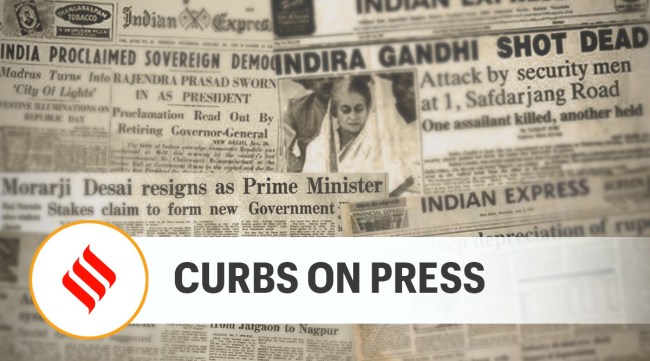Opinion Threat of cancelling accreditation intrudes on rights of free press, attempts to shrink space for dissent. It must be withdrawn
The provisions in the new accreditation policy can turn into weapons to be wielded against the media, and shrink the space for journalism. They must be withdrawn.
 When the government decides what a journalist can do or cannot, Article 19 is in peril.
When the government decides what a journalist can do or cannot, Article 19 is in peril. The Ministry of Information and Broadcasting is at it again — arrogating to itself the powers to play judge, jury and editor. A new policy announced by the government dangles the threat of cancelling the accreditation of journalists if they “act in a manner which is prejudicial to the sovereignty and integrity of India, the security of the state, friendly relations with foreign states, public order, decency or morality or in relation to contempt of court, defamation or incitement of an offence”. This is an intrusion on the rights of a free press on many counts. First, accreditation is not a favour by the Government; it is bound by democratic norms to provide access to journalists to do their job. Second, what’s the definition of “morality and decency,” and who will do the defining? These are vague, overbroad terms that, in the hands of a vindictive bureaucracy or a government, can easily be used to harass and silence journalists. This provision also appears to be intentionally blind to the place of journalism in a democracy — which exists to interrogate the state and its exercise of power.
This is not the first time that a government has attempted to walk down this path. In 2018, the Union Ministry of Information and Broadcasting under Smriti Irani had similarly threatened to cancel accreditation if a journalist was found to have spread “fake news”, another catch-all term that is frequently used by the political class to deny unfavourable news. It was forced to withdraw such a rule after protests. In 1988, the Rajiv Gandhi government attempted a similar run on journalistic freedoms through the Defamation Bill, which broadened the definition of defamation and transferred the burden of proof on the accused. The uproar across the country eventually forced the government to withdraw the bill.
Today, technology and social media have not only empowered the political class’s one-way communication with the people, but also mainstreamed a narrow hyper-nationalism that is intolerant to questioning and dissent, that is only in thrall to one story. When the government decides what a journalist can do or cannot, Article 19 is in peril. The provisions in the new accreditation policy can turn into weapons to be wielded against the media, and shrink the space for journalism. They must be withdrawn.
This editorial first appeared in the print edition on February 9, 2022 under the title ‘Curbs on press’.






